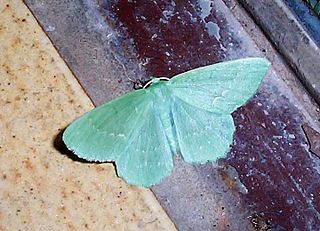
The Geometroidea are the superfamily of geometrid moths in the order Lepidoptera. It includes the families Geometridae, Uraniidae, Epicopeiidae, Sematuridae, and Pseudobistonidae. The Geometroidea superfamily has more than 24,000 described species, making them one of the largest superfamilies inside the order Lepidoptera. The monotypic genus Apoprogones was considered a separate geometroid family of the Apoprogonidae by a minority, but is now subsumed under the Sematuridae.
Palaephatoidea is a superfamily of insects in the order Lepidoptera with a single family, Palaephatidae with seven known genera. These "Gondwanaland moths" exhibit a disjunct distribution occurring mainly in South America, with four species in eastern Australia and Tasmania and one in South Africa. The larvae spin together leaves of Proteaceae (Ptyssoptera) or Verbenaceae (Azaleodes) . Palaephatoidea, a typical monotrysian group, is one two main candidates as the sister group of most of the Lepidoptera, the Ditrysia.

Gracillarioidea is a large superfamily containing four families of insects in the order Lepidoptera. These generally small moths are miners in plant tissue as caterpillars. There are about 113 described genera distributed worldwide, the most commonly encountered of which are leaf miners in the family Gracillariidae.

The Arctiini are a tribe of tiger moths in the family Erebidae.

Eupterotidae is a family of insects in the order Lepidoptera with more than 300 described species.
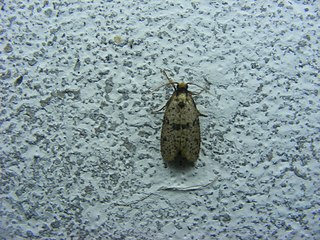
Eriocottidae or Old World spiny-winged moths is a family of insects in the order Lepidoptera whose position relative to other members of the superfamily Tineoidea is currently unknown. There are two subfamilies, Compsocteninae and Eriocottinae.

Epicopeiidae is a family of insects in the order Lepidoptera. They are known as oriental swallowtail moths as they closely resemble some oriental swallowtail butterflies. Epicopeiidae have highly varied structure in regards to body size and wing shape. Epicopeiidaen wing patterns are involved in complicated mimicry rings.
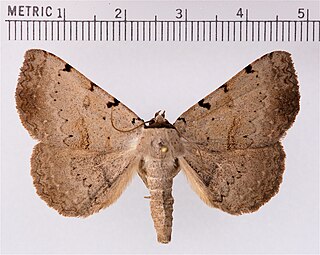
The Catocalini are a tribe of moths in the family Erebidae. Adults of many species in the tribe are called underwing moths due to their vividly colored hindwings that are often covered by contrastingly dark, drab forewings.
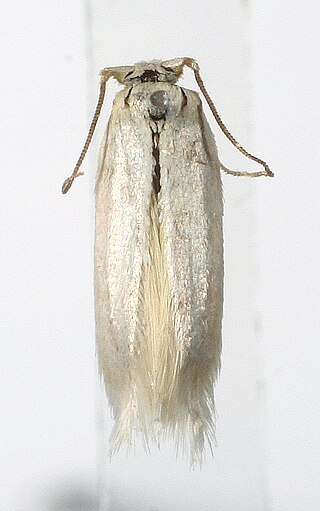
Opostegidae or "white eyecap moths" is a family of insects in the order Lepidoptera that is characterised by particularly large eyecaps over the compound eyes. Opostegidae are most diverse in the New World tropics.
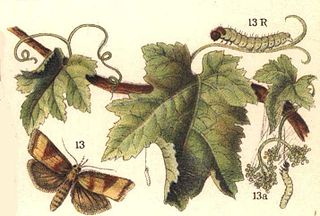
The Sparganothini are a tribe of tortrix moths.

Eilema is a genus of moths in the subfamily Arctiinae. The genus was erected by Jacob Hübner in 1819.

Chlidanotinae is a subfamily of moths in the family Tortricidae.

The Cochylini are a tribe of tortrix moths. It used to be classified as the subfamily Cochylinae.
Zadadra is a genus of moths in the subfamily Arctiinae.

The Euliini are a tribe of tortrix moths.
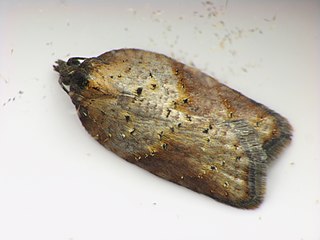
The Tortricini are a tribe of tortrix moths.

The Erionotini are a tribe of skipper butterflies in the subfamily Hesperiinae.
Zadadra costalis is a moth of the subfamily Arctiinae. It is found in northern China and Assam, India.
Zadadra distorta is a moth of the subfamily Arctiinae. It is found in Nepal, India and Pulau Laut.

Eulepidoptera is a division of lepidopterans in the infraorder Heteroneura.















